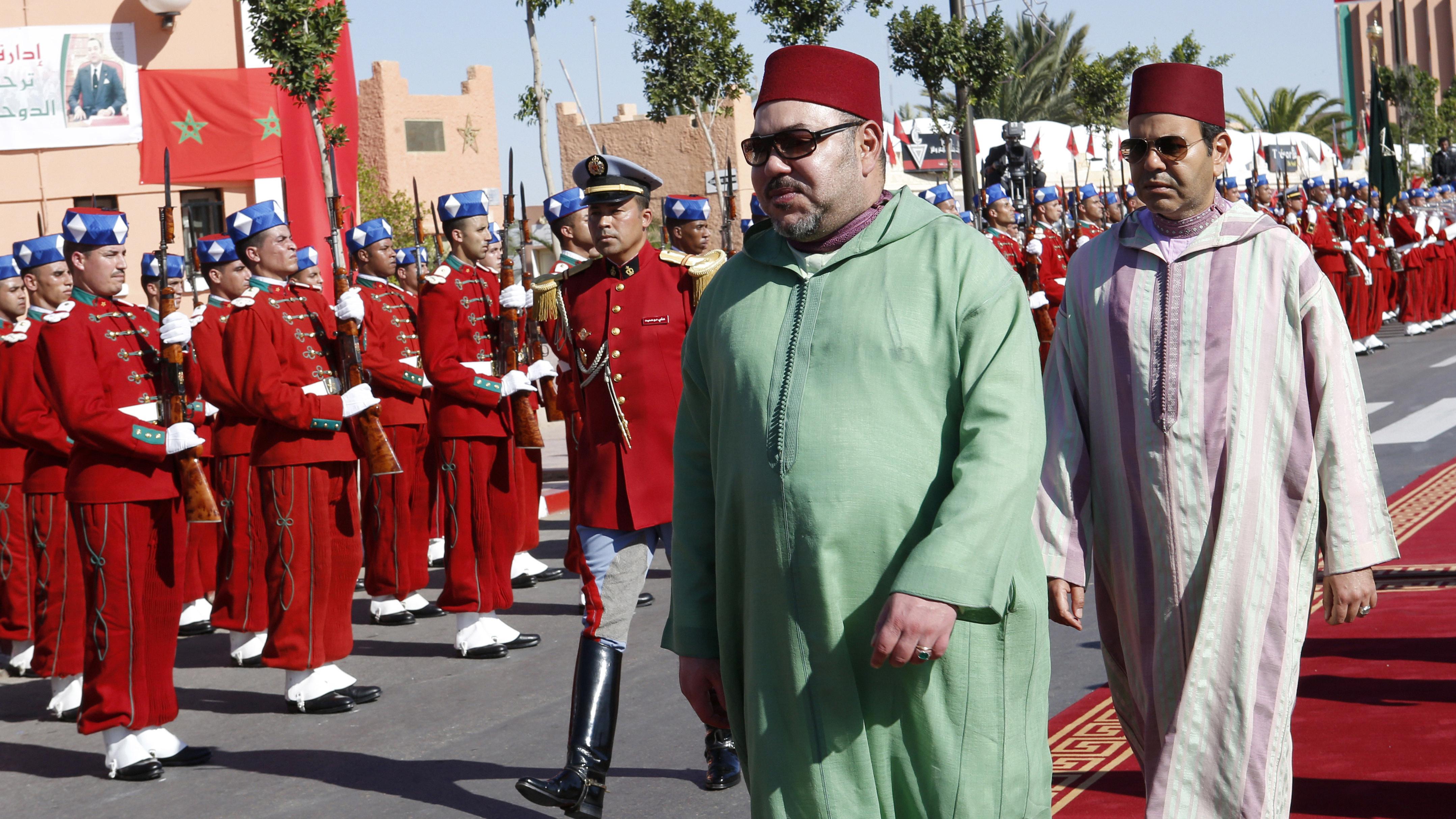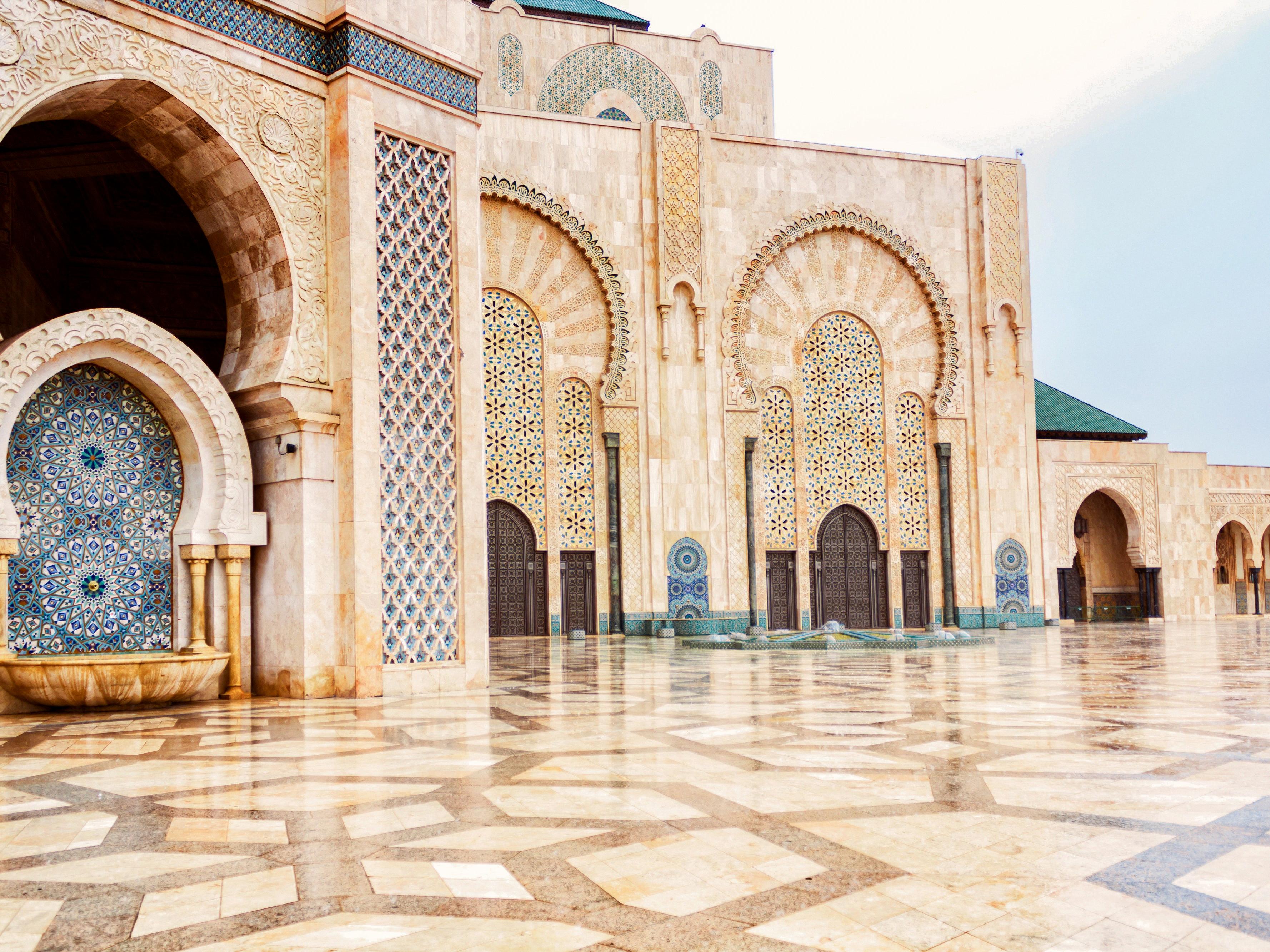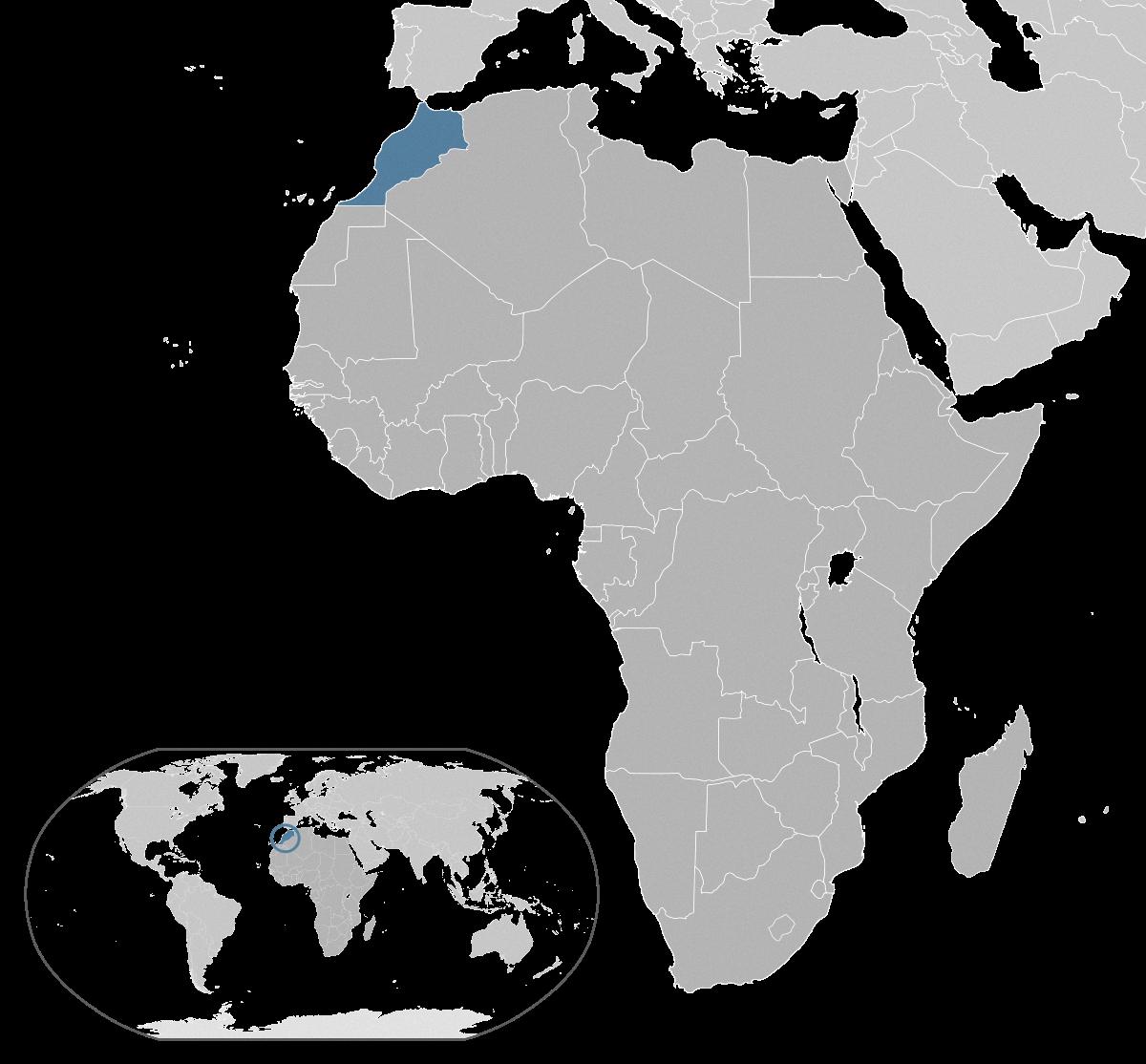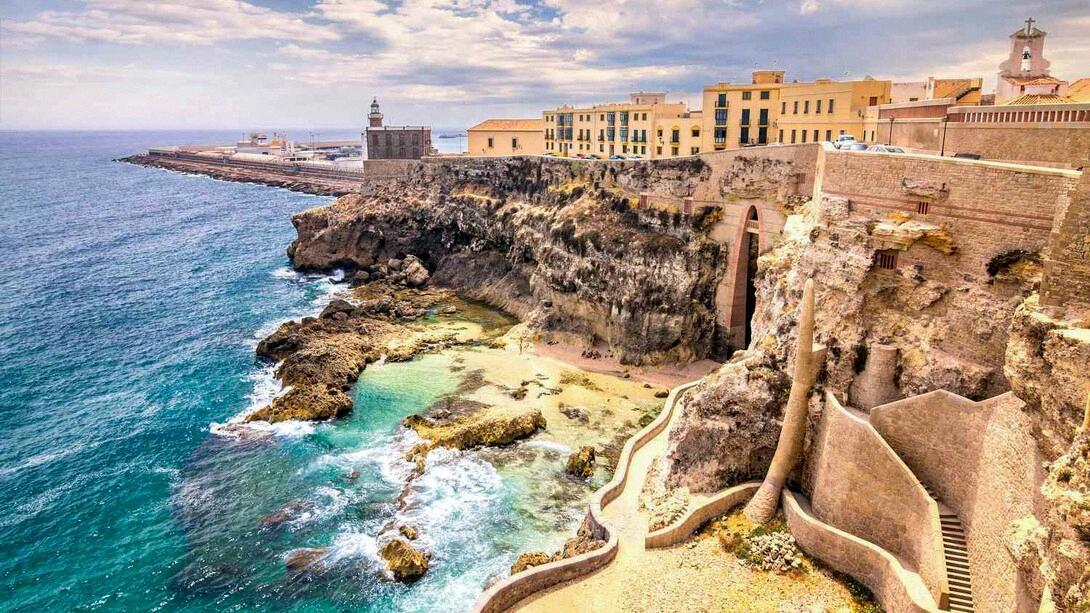Morocco is a country located in the northern part of Africa, bordered by the Atlantic Ocean to the west and the Mediterranean Sea to the north. Its neighboring countries include Algeria to the east and Mauritania to the south. Despite being located in Africa, Morocco has a unique cultural blend that sets it apart from other African countries.
The population of Morocco is predominantly Arab and Berber, with Arab people making up 67% of the population and Berber people making up 31%. The remaining 2% are Sahrawis, who are indigenous to the disputed Western Sahara region. Islam is the official religion of Morocco, and the majority of the population practices Sunni Islam.
Morocco has a rich history that spans thousands of years. The country was home to many ancient civilizations, including the Phoenicians, Romans, and Carthaginians. The Berber people have inhabited Morocco for over 4,000 years and have left their mark on the country’s culture and traditions.
Morocco gained independence from France in 1956, and since then, it has been a constitutional monarchy. The current king of Morocco is King Mohammed VI, who has been in power since 1999. Morocco is a member of the United Nations, the Arab League, and the African Union.
Morocco’s geography is diverse, with mountain ranges, deserts, and coastlines. The Atlas Mountains run through the country, and the Sahara Desert covers the southern part of Morocco. The country’s coastline includes both the Atlantic Ocean and the Mediterranean Sea, making it a popular destination for beachgoers.
Morocco is kown for its vibrant culture, which is a blend of Arab, Berber, African, and European influences. The country’s cuisine is particularly famous, with dishes like tagine, couscous, and harira being popular both in Morocco and abroad. Moroccan architecture is also unique, with buildings featuring intricate designs and vibrant colors.
Morocco is a country located in Africa that has a rich history, diverse geography, and a unique culture. Despite being located in Africa, Morocco’s blend of cultural influences sets it apart from other African countries. If you’re looking for a destination that offers a mix of history, culture, and natural beauty, Morocco is definitely worth considering.
Is Morocco Part of Africa?
Morocco is considered part of Africa. In fact, it is located in the far northwestern corner of the African continent. Morocco shares borders with several African countries, including Algeria to the east and Mauritania to the south. Additionally, Morocco is a member of the African Union, a political and economic organization made up of 55 member states across the African continent. While Morocco shares some cultural and historical ties with Europe due to its proximity to Spain and its former status as a French protectorate, it is firmly situated on the African continent and is widely recognized as such by the international community.
Source: cpr.org
Are Moroccans Arab or African?
Moroccans are primarily of Arab and Berber origin, which places them in the Middle East and North African regions. Geographically, Morocco is located in North Africa, but the country’s historical and cultural connections have also made it an important part of the Arab world. So, while Moroccans are technically African due to their location, they are also Arab due to their cultural and historical affiliations. Therefore, it is accurate to say that Moroccans are both Arab and African.
Why Morocco Is Not Considered Part of Africa
Morocco is actually part of Africa, located in the northwestern region of the continent. It is a member of the African Union (AU) and the Arab League. However, there may be confusion or misunderstanding abut Morocco’s membership in the AU due to its history with the former Organization of African Unity (OAU). In 1984, Morocco withdrew from the OAU after the organization recognized the Sahrawi Arab Democratic Republic (Western Sahara) as a member state. Morocco claims sovereignty over Western Sahara, while the Polisario Front, a Sahrawi liberation movement, seeks independence for the territory. This dispute has led to Morocco’s ongoing absence from the OAU’s successor, the AU, from 1984 to 2017, when Morocco was re-admitted to the AU. Nonetheless, Morocco remains a fully recognized African country and a member of the United Nations.
Morocco’s Current Country Status
Morocco is a country located in western North Africa. It shares borders with Algeria to the east, Western Sahara to the south, and the Atlantic Ocean and Mediterranean Sea to the west and north, respectively. The official name of the country is the Kingdom of Morocco, and it is a constitutional monarchy with King Mohammed VI as the head of state. The country has a diverse population that includes Arab, Berber, African, and European cultural influences. Morocco is known for its vibrant cities, stunning landscapes, rich history, and unique cuisine. It is a Muslim country with a predominantly Sunni Muslim population, alhough there are also small Jewish and Christian communities.
The Origins of Arabs: Tracing Their Roots to Africa
The Arab population is believed to have originated from Africa, specifically the Arabian Peninsula. The out-of-Africa migrations occurred between 125,000 and 60,000 years ago, leading to the hypothesis that the first Eurasian populations were established on the Peninsula. These ancient peoples are believed to be the direct ancestors of contemporary indigenous Arabs. The genetic studies have also found that there is a significant genetic continuity between modern-day Arab populations and their ancient ancestors, further supporting the African origin of the Arab people. the evidence suggests that the Arab population did indeed originate from Africa, specifically the Arabian Peninsula.
Source: cntraveler.com
The Notable Features of Morocco
Morocco is known for a diverse range of things that make it a unique and fascinating destination for travelers. First and foremost, the Atlas Mountains are a major draw, offering stunning natural scenery and outdoor activities such as hiking and skiing. The Moroccan Desert and Sahara are also world-renowned, with their vast expanses of sand dunes and nomadic communities. In addition to these natural wonders, Morocco boasts numerous wild beaches and azure coasts that are perfect for sunbathing, swimming, and water sports.
Morocco is also known for its impressive monuments, architecture, and history. The country’s ancient cities, such as Marrakech and Fez, are home to beautiful mosques, palaces, and old medinas that are steeped in history and culture. Moroccan cuisine is also famous for its bold and flavorful spices, with dishes like tagine and couscous being popular staples.
Morocco’s unique culture is anothr major draw, with its vibrant music, colorful clothing, and bustling markets. The country is also known for its friendly people, who are always happy to welcome visitors and share their customs and traditions. Morocco is home to a large population of cats, which are beloved by locals and often seen lounging around the streets and alleyways of the cities.
The Genetic Makeup of Moroccans
Moroccans have a diverse genetic profile that is influenced by their geographic location and historical migration patterns. The genetic makeup of the Moroccan population is a mixture of autochthonous Maghrebi lineages, which refers to the native North African population, as well as genetic contributions from Northeast African, European, West Asian, and West African populations. This complex mosaic of genetic elements varies in degrees for each individual, resulting in a unique genetic signature for each Moroccan person. Therefore, it can be said that Moroccans have a rich and diverse genetic heritage that reflects their historical and cultural connections with various regions aross Africa, Europe, and Asia.
Appearance of People in Morocco
Moroccan people are diverse in terms of their physical appearance due to the country’s unique geography and cultural history. However, many Moroccans typically have distinct physical features such as big, brown, almond-shaped eyes, brown hair, pouty lips, and olive skin. This is due to the country’s location at the intersection of Africa, Europe, and the Middle East, resulting in a mix of genetic traits from various ethnic groups. Additionally, there are also Berber people, who are indigenous to Morocco, and they ofen have lighter skin, curly hair, and a distinct facial structure. the physical appearance of Moroccans varies greatly, but they are generally known for their strikingly beautiful and diverse features.
Can You Consume Alcohol in Morocco?
In Morocco, drinking alcohol is legal and is served in licensed hotels, bars, and restaurants. However, it is important to note that drinking alcohol in public places such as streets, parks, or beaches is strictly prohibited and can lead to arrest. It is also important to respect the local customs and traditions, especially during the holy month of Ramadan, where drinking alcohol in public is considered highly disrespectful. Tourist areas, such as Marrakech and Casablanca, have a more relaxed attitude towards alcohol consumption, but it is still recommended to drink responsibly and within the boundaries of licensed establishments.
Source: commons.wikimedia.org
Is Egypt an African Country?
Egypt is an African country. It is located in the northeastern corner of the African continent and shares borders with Sudan to the south, Libya to the west, and Israel and the Gaza Strip to the northeast. Egypt’s geography is dominated by the Nile River, which flows from the south to the north and empties into the Mediterranean Sea. Throughout history, Egypt has been an important center of trade and culture, with its ancient civilization beng one of the earliest and most influential in the world. Today, Egypt is a modern country with a diverse population, rich cultural heritage, and a growing economy.
Religion in Morocco
Morocco is a country that identifies as a sovereign Muslim state, with Islam as its official religion. With a population of predominantly Muslim citizens, the country has a rich Islamic heritage and culture that influences many aspects of daily life. However, the constitution also recognizes the right to freedom of religion and respects the rights of non-Muslims to practice their faith. As a result, Morocco is home to diverse religious communities, including Christians, Jews, and followers of othr religions. while Islam is the dominant religion in Morocco, the country embraces religious pluralism and encourages tolerance and respect for all faiths.
Relationship Between the United States and Morocco
Morocco is a friend of the United States. In fact, the two countries have a strong and long-standing relationship that dates back to the 18th century. Morocco was the first country to recognize the newly formed United States in 1777, and the two nations have maintained diplomatic relations since then. In 2004, the U.S. designated Morocco a Major Non-NATO Ally, wich signifies a close strategic partnership. The U.S. and Moroccan militaries hold joint exercises and training, and Morocco is a strong partner in counterterrorism efforts. Additionally, Morocco works closely with U.S. law enforcement to safeguard both countries’ national security interests.
Control of Morocco by Foreign Nation
Morocco achieved its independence from France on March 2, 1956, and has been a sovereign state since then. Currently, Morocco is an independent country, and no other country controls it. The country has its own government, laws, and policies, and it exercises complete control over its own affairs. Morocco has friendly diplomatic relations with many countries around the world and is a member of the United Nations, the Arab League, and the African Union. Therefore, it can be said that Morocco is a free and independent country that exercises complete sovereignty over its territory and people.
Source: meer.com
Language of Morocco
Morocco is a North African country that has been influenced by both French and Arabic cultures. French was introduced to Morocco during the colonization period, and it still plays a significant role in the country’s education system and business world. However, the official language of Morocco is Arabic, and it is the language used for official government business. Moroccan Arabic, or Darija, is the most commonly spoken language among the people of Morocco. So while French has had an impact on the country, Morocco’s identity is deeply rooted in its Arabic language and culture.
Conclusion
Morocco is a mountainous country located in western North Africa, directly across the Strait of Gibraltar from Spain. The country is home to a diverse population primarily consisting of Arabs and Berbers, with Sahrawis making up a smaller percentage. Morocco is a Muslim country that boasts a unique blend of cultural influences from Arab, Berber, African, and European traditions. As a founding member of the OAU, Morocco withdrew from the organization in 1984 due to the acceptance of the Sahrawi Arab Democratic Republic as a member state. Although sovereignty over the disputed territory remains contentious, Morocco continues to rule over most of the region. With its stunning landscapes, rich history, and vibrant culture, Morocco is a fascinating country that offers a unique travel experience for anone interested in exploring Africa.




